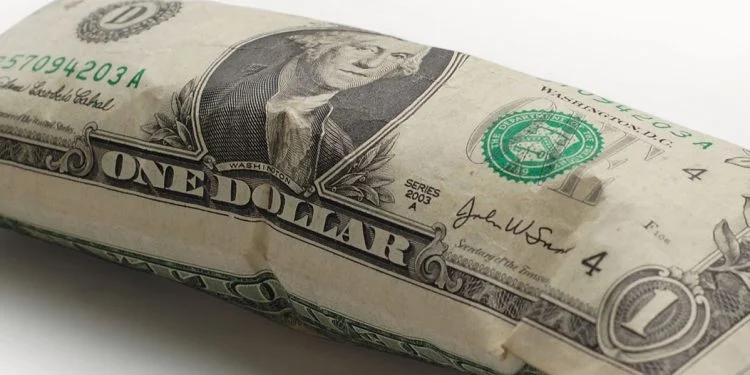After ending last year with unexpectedly strong vaccine success and hope that the pandemic and economic distress it caused would recede, we woke up to the reality of new virus variants and the unpredictable, winding road that it can lead the world down.
Something similar has happened with the discourse on inflation. At the end of last year, after a historic collapse of the global economy estimated at -3.5 percent, inflation was below target in 84 percent of countries. This was expected to allow for continued low interest rates and government spending to support growth, especially in advanced economies.
The U.S. plan for an additional $1.9 trillion of fiscal spending has challenged this view, with even traditionally dovish economists raising concerns about an overheated economy that could push inflation well above the comfort zone of central bankers.
The evidence from the last four decades makes it unlikely, even with the proposed fiscal package, that the United States will experience a surge in price pressures that persistently pushes inflation well above the Fed’s 2 percent target. Despite the large swings in the U.S. unemployment rate from 10 percent in 2009 to 3.5 percent in 2019, inflation remained remarkably stable, even as wages rose.
As of now, U.S.2008 employment gaps are large and understated by the headline unemployment rate. Our preliminary estimate is that the proposed U.S. package, equivalent to 9 percent of GDP, would increase U.S. GDP by a cumulative 5 to 6 percent over three years.
Inflation, as measured by the Fed’s preferred index, would reach around 2.25 percent in 2022, which is nothing to be concerned about and, indeed, would help underpin the achievement of the goals outlined in the Fed’s policy framework.
Several structural factors underlie this diminished relation between inflation and economic activity in many countries. One such factor is globalization that has limited inflation in traded goods and even some services.
In this crisis, despite some early disruptions, global supply chains have shown resilience and agility, and merchandise trade has recovered in lockstep with the recovery in manufacturing, surpassing pre-pandemic levels. Considerable slack remains in the global economy, with over 150 countries projected to have lower per capita incomes in 2021 relative to 2019.
A second factor is automation which, along with relative declines in the price of capital goods, has largely kept higher wages from being passed through to prices. This crisis is likely to accelerate that trend. Another structural trend over recent decades is the dominance of market share by firms with high profit margins.
This has allowed these firms to absorb higher costs without raising prices, as was seen after the increase in U.S. tariffs. This crisis could likely increase the market share of such firms, as smaller firms have been harder hit than large businesses by the pandemic-related downturn.
Another important factor is that expectations of inflation have remained broadly stable around the targets set by central banks, thanks to central banks’ independence and the credibility of their policies. This credibility has also meant that even with high government debts there is no expectation that monetary policy will prioritize keeping government borrowing costs low at the expense of high inflation.
As an example, Japan’s government debt has averaged over 200 percent of GDP since 2009, yet the challenge has been to raise inflation expectations. Indeed, inflation in Japan has averaged just 0.3 percent over the past decade.
None of this detracts, however, from the need to follow sound principles in the conduct of policy. First, even though there is limited risk of a steep rise in inflation, well targeted public spending would deliver the same improvement in employment and output but with a much smaller accumulation of debt, leaving more space for future spending that carries a high social return.
High quality public investment would raise potential output, increase demand, and should be central to a comprehensive climate mitigation strategy to mitigate the catastrophic risks from climate change.
Second, because these are uncertain times with almost no parallel in history, extrapolating from the past is risky. Because of exceptional policy measures in 2020, including fiscal spending by G7 countries of 14 percent of GDP—well above the cumulative 4 percent of GDP spent during the financial crisis years of 2008–10—household savings rates in advanced economies are at multi-year highs and bankruptcies are 25 percent lower than before this pandemic.
As vaccine protection becomes widespread, pent-up demand could trigger strong recoveries and defy inflation projections based on evidence from recent decades. On the other hand, bankruptcies may have only been delayed, and their eventual increase could dampen confidence, and weaken inflation and lead to further job losses.
Lastly, there is the danger of market turbulence that could be triggered by the discovery of new virus variants, transitory swings in inflation, or the possibility that major central banks raise interest rates sooner than expected. Such market reaction could tighten global financing conditions in unexpected ways.
While central banks can’t do anything to change the course of the pandemic, they can and should pre-empt the possibility of sharp swings in borrowing costs. They can do this with early and clear communications of their intentions.








